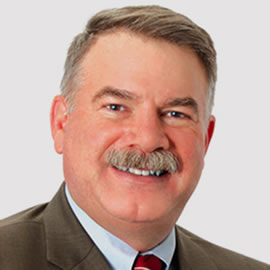‘Better to get hurt by the truth than comforted with a lie.’ ― Khaled Hosseini, “The Kite Runner”
We are presently enjoying the cool climate and spectacular beauty of Acadia National Park. The scenic byways and trails during September are worth a place on your bucket list. Today is Sept. 11, which causes many Americans to pause and reflect on everything that has occurred in this country since 2001. My career and family life were so profoundly sent in an unexpected direction that I still think of my time on this planet in terms of before 9/11 and then after. I imagine many readers of this column know precisely what I am expressing.
Recently, a much younger friend expressed distress over her life circumstances and the seemingly endless supply of poor or erroneous “advice” that tends to bombard young people through social media. In an attempt to provide comfort, I related to this young person some wisdom I often used with the myriad anesthesiology residents I have had the good fortune to train (I imagine the feeling is not necessarily mutual). For those former anesthesiology residents who had my wisdom inflicted mercilessly upon them, perhaps you should forgo this editorial because here it comes, THE BLACK PEARL.
Like most competent staff medical educators, we did things my way when I was running the clinical section. After all, it was my “credit card” (my responsibility) for the care and outcome of the patients the residents were practicing and learning. Occasionally, a new or ill-informed resident would ask why I preferred a particular way of doing things when other staff (often a majority) did the same task differently. After the room cleared of more senior residents who knew what was coming, I would lay down my philosophy of the black pearl. I would begin by asking if the naïve (and now worried and alone) resident knew what a “pearl of wisdom” was? Usually, the resident target would respond affirmatively and provide some answer related to truthful information designed to help a learner in their educational journey. I would then continue and ask if said resident was aware of black pearls of wisdom? Invariably, this question was met with a blank stare.
At this point, I would pause for dramatic effect and then say, “As medical educators responsible for your development into a staff physician, all of your attendings are constantly telling you tidbits of useful wisdom regarding the practice of medicine. Most of these ‘pearls’ are said with the utmost authority, are often not found in textbooks, and are designed to improve your care of patients. Unfortunately, the sad reality is that many of these so-called white pearls of useful information said with authority as if they were postulates of medical science are (again, pause for effect) indeed utter bullsh*t. Your job, young padawan, is to sift through these staff pearls and determine for yourself which are white and black.” I would then assure the poor resident that all my pearls were white, of course.
By this time, the more senior residents would have wandered back to ensure this particular case was progressing and that I was not hurting the patient (It is the solemn duty of the residents to protect the patients from the staff when they are educating). I would complete my diatribe by challenging the young resident to always question staff (in non-emergencies) about why they are making a particular patient care decision. Any staff educator worth the title should relish the opportunity to explain themselves to benefit the resident and the patient. In fact, I would continue, if staff cannot explain their actions, that is an excellent time for them to do nothing. I would then explain why I thought my particular approach to the medical issue at hand was superior (and it was) to any alternative.
Admittedly, this editorial down memory lane has been a bit self-indulgent. I am often asked if I miss anything now that I am in retirement, and it is the interaction with the residents. I have always learned new things from residents, and I fervently hope they can say the same of me. The point of my black pearl discussion with the residents was to remind them that even physicians are still human, and any activity touched by humans is prone to error. Any decent physician must understand human fallibility in their peers, patients, and, most importantly, themselves. Young residents are often defined by their belief in a “correct” answer to all things medical. This is, of course, a fallacy drummed into them from medical school and the incessant testing. The best clinicians understand the science, but recognize the gray area when medical science is applied to actual humans. This is the “art” of medicine that only comes from clinical mentors. This medical truth can be disorienting and uncomfortable to students of the trade. Still, it trains the budding clinician to be suspect and critical of everything that comes their way as purported established fact. This forces the clinician to analyze and understand the information, which can only benefit the patient.
I told this story to the young person I mentioned earlier as a possible way to deal with the onslaught of information on social media. Learning to think critically is a skill I fear is eroding in the era of the internet and the Google oracle. Truth in medicine, like pearls in oysters, is prized because of rarity and must be sought after with personal effort. I feel this “truth” applies to all aspects of life. One must be willing to put the time in to discover what is fact from what is false, particularly when the truth may be painful.




